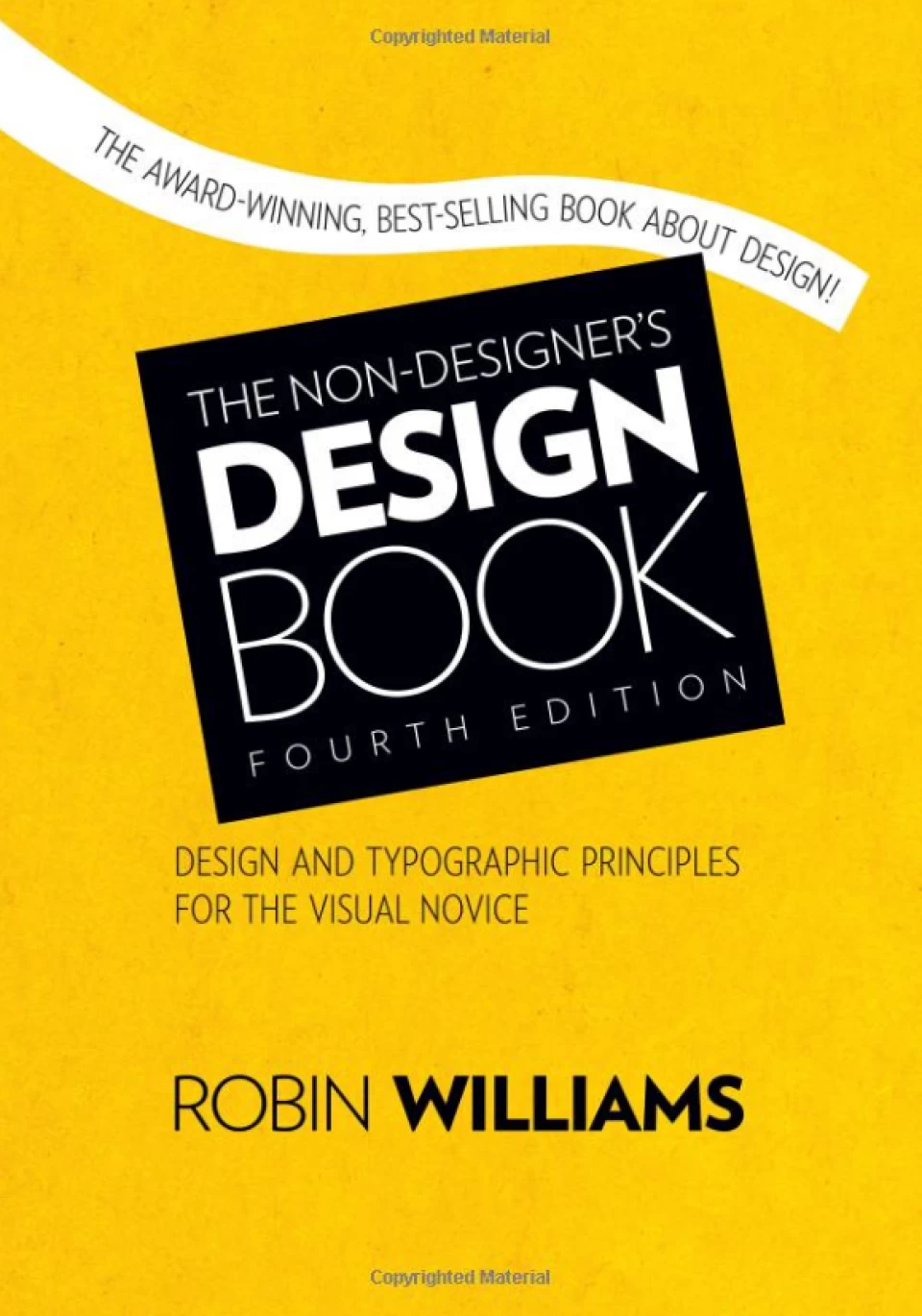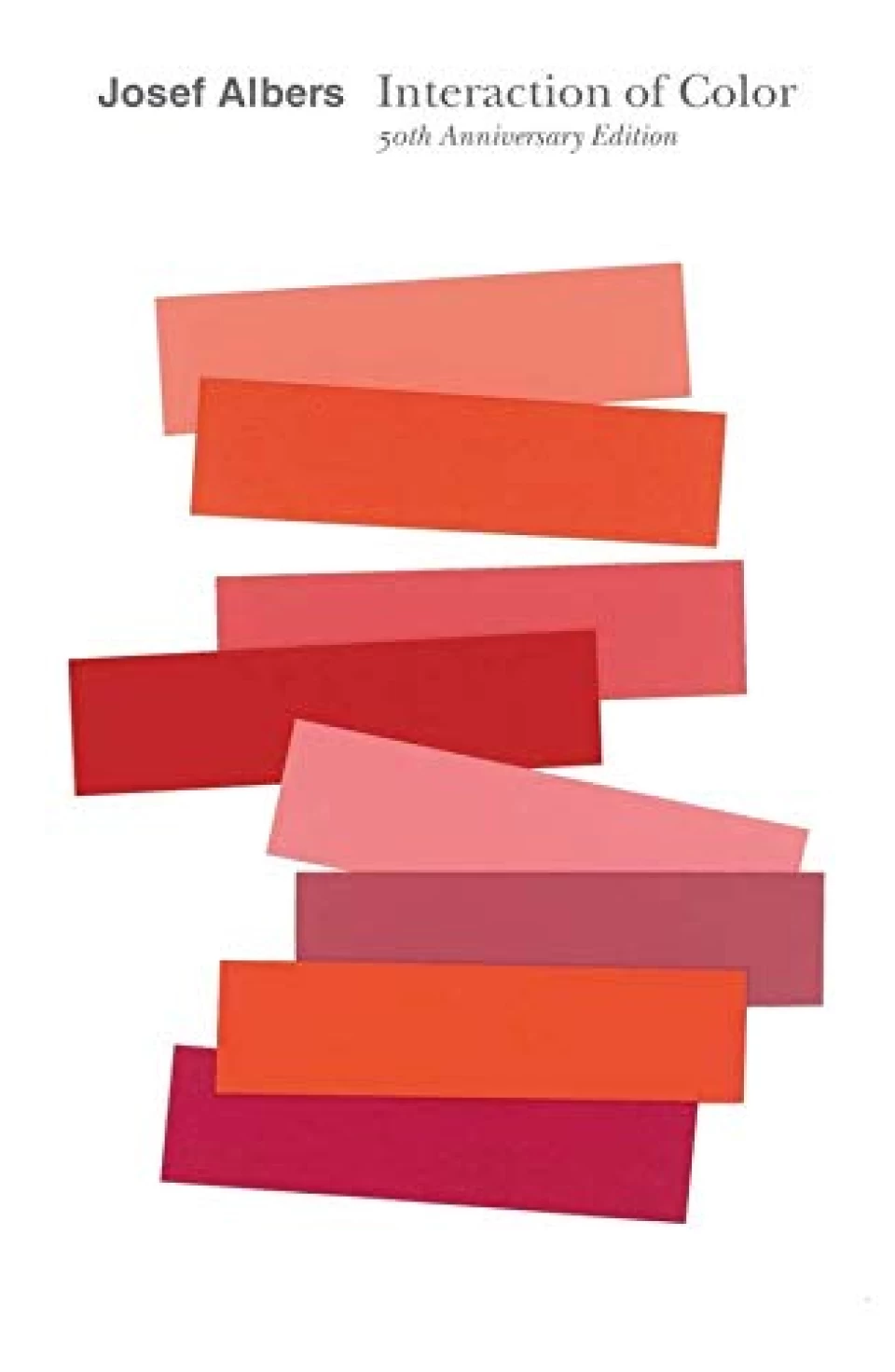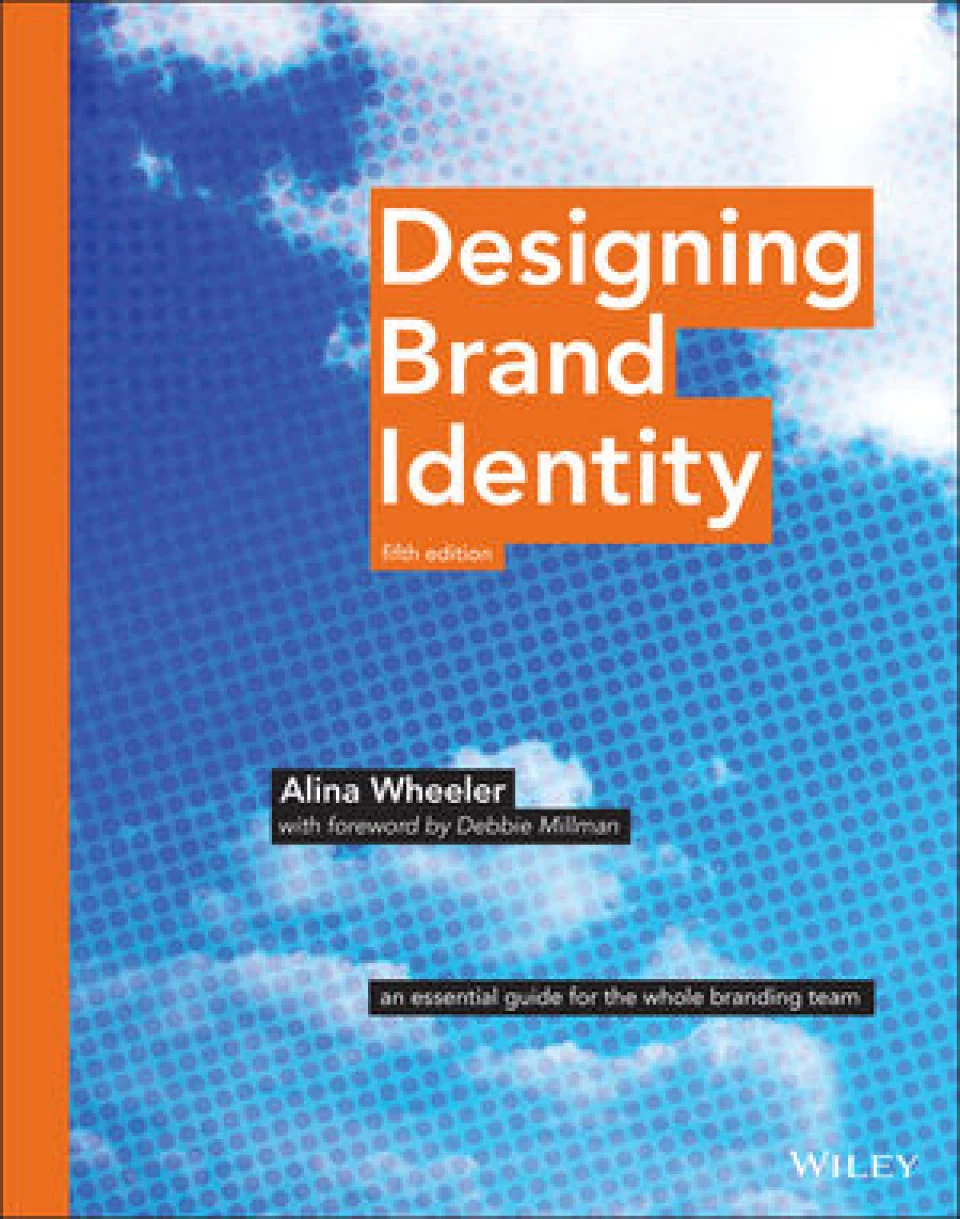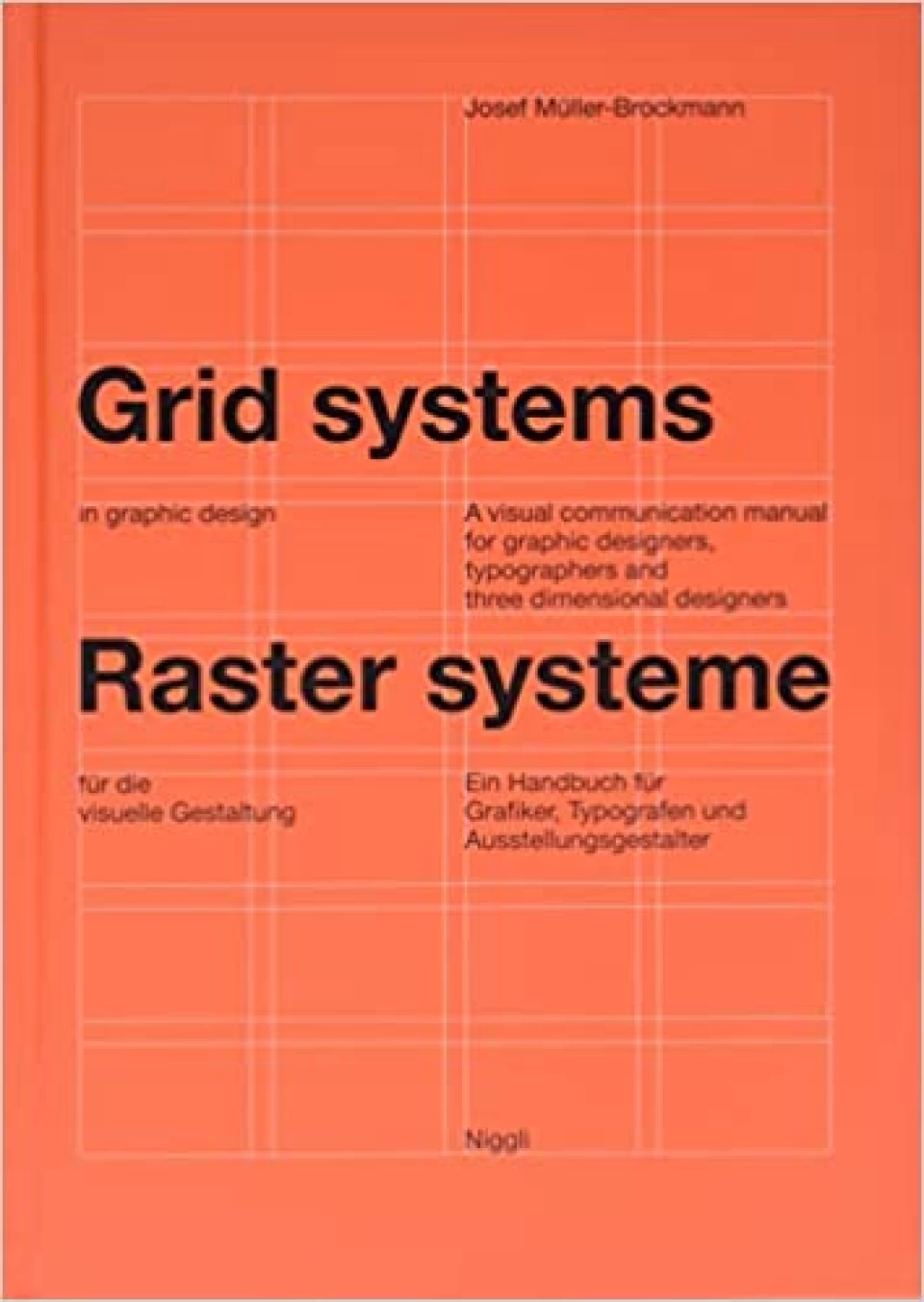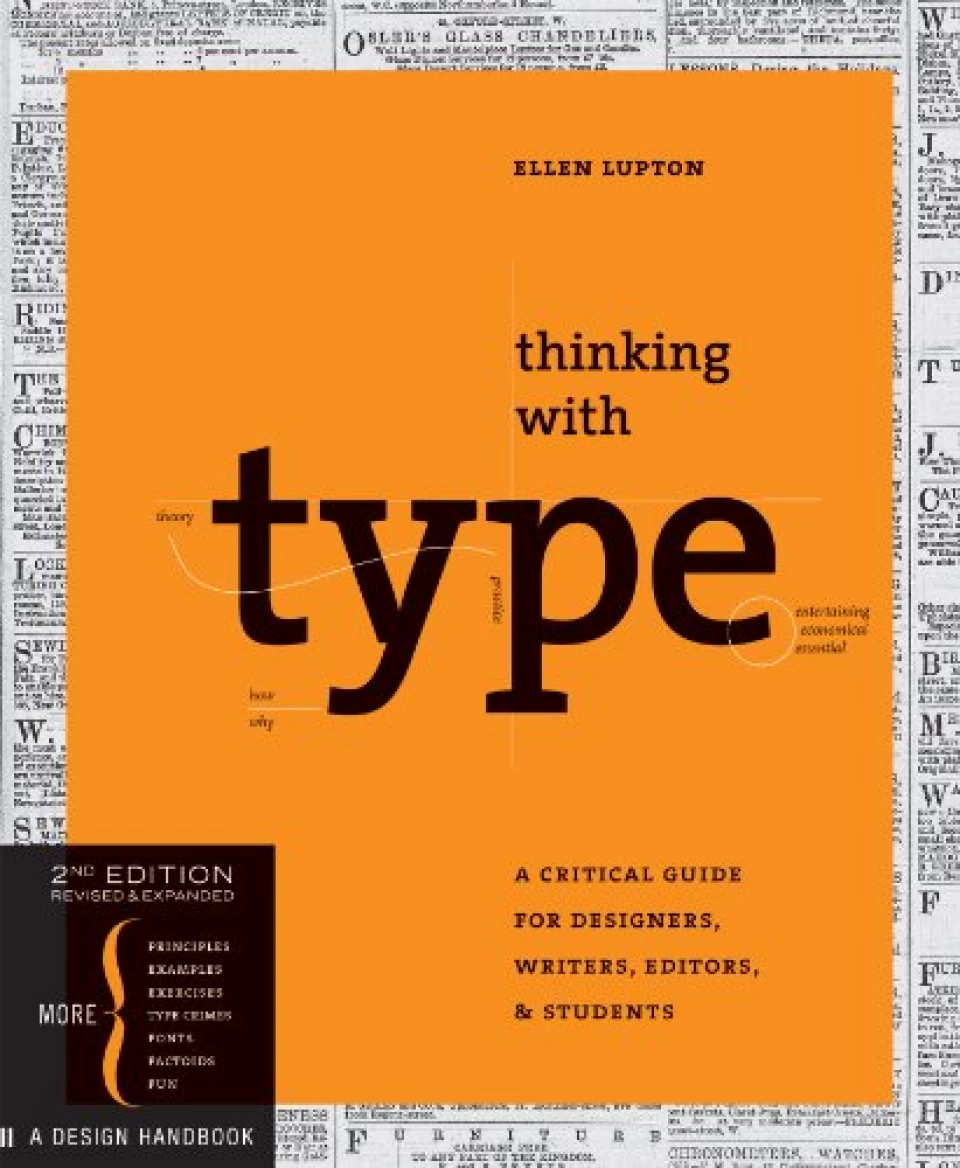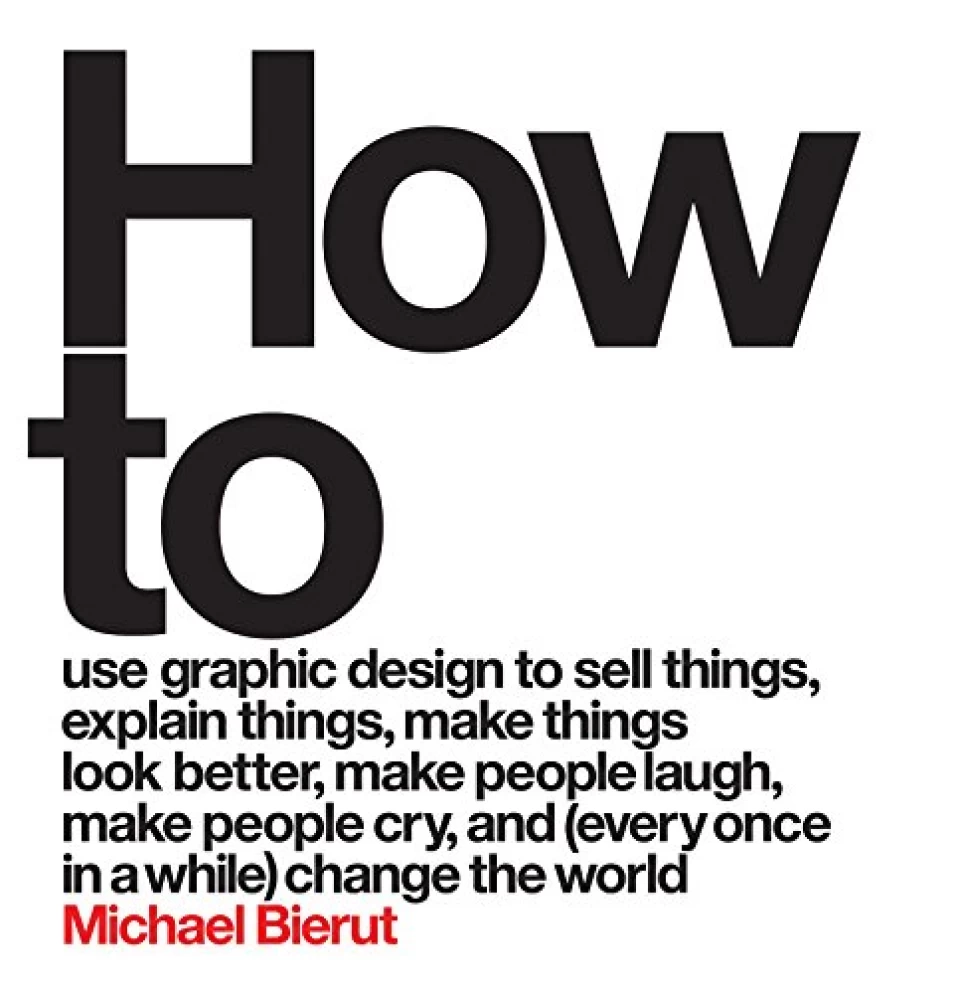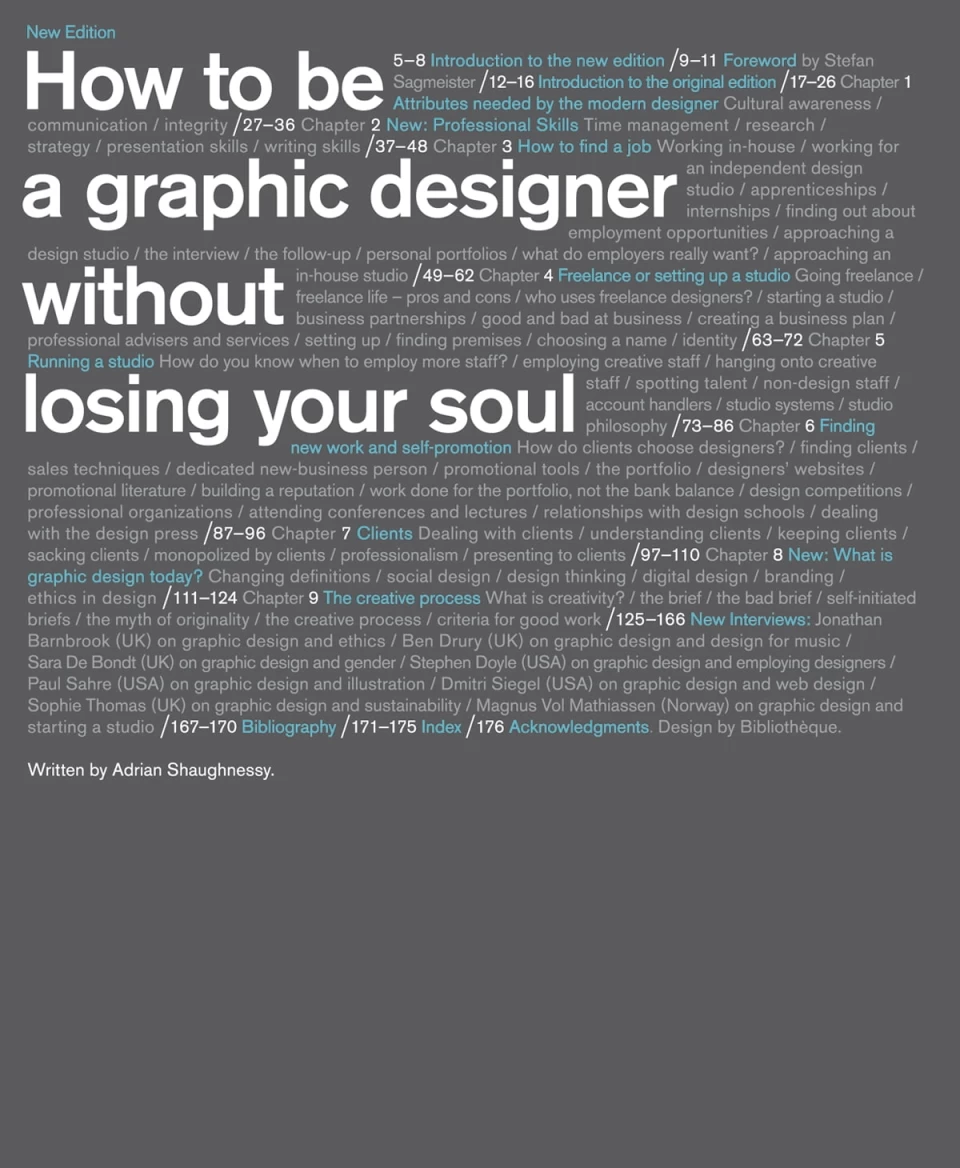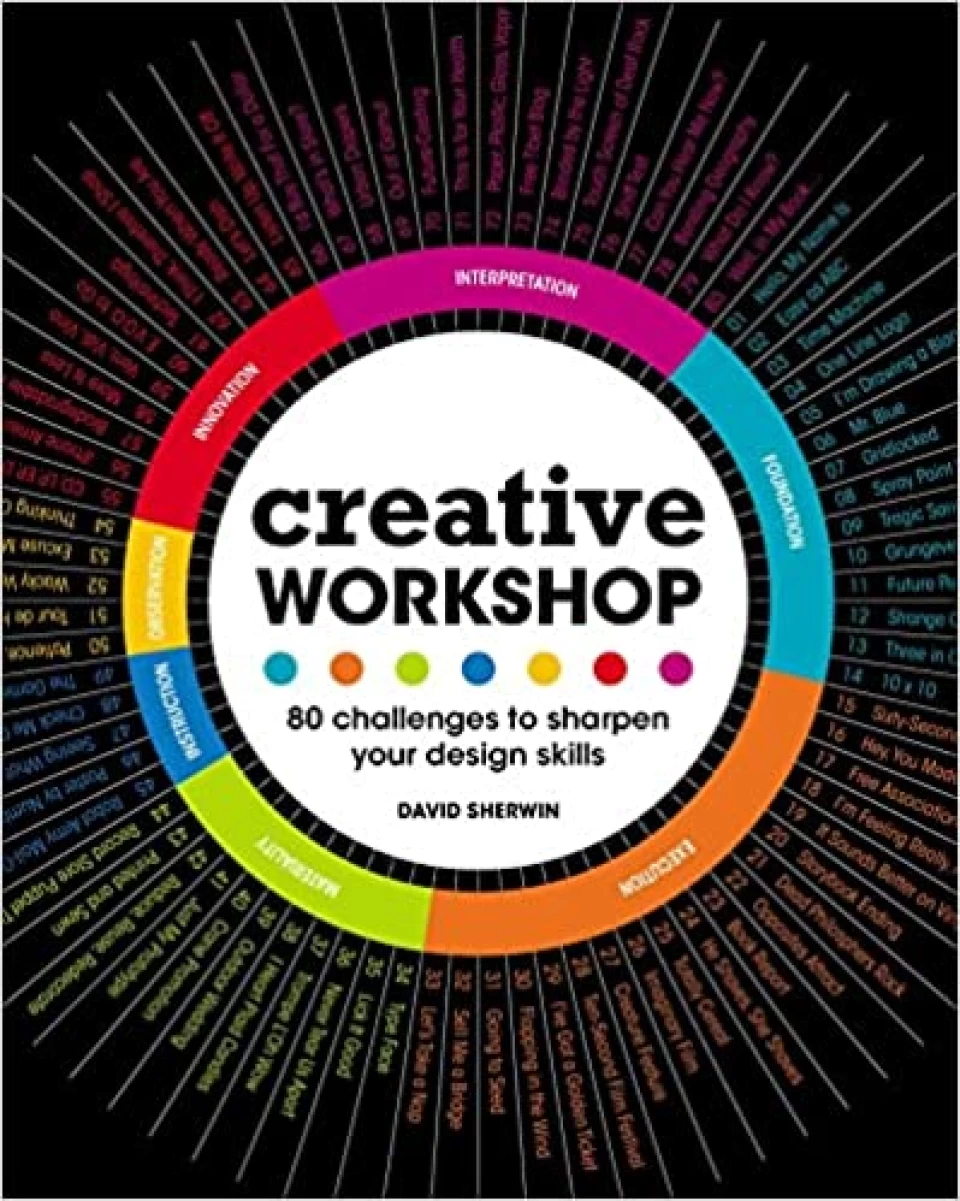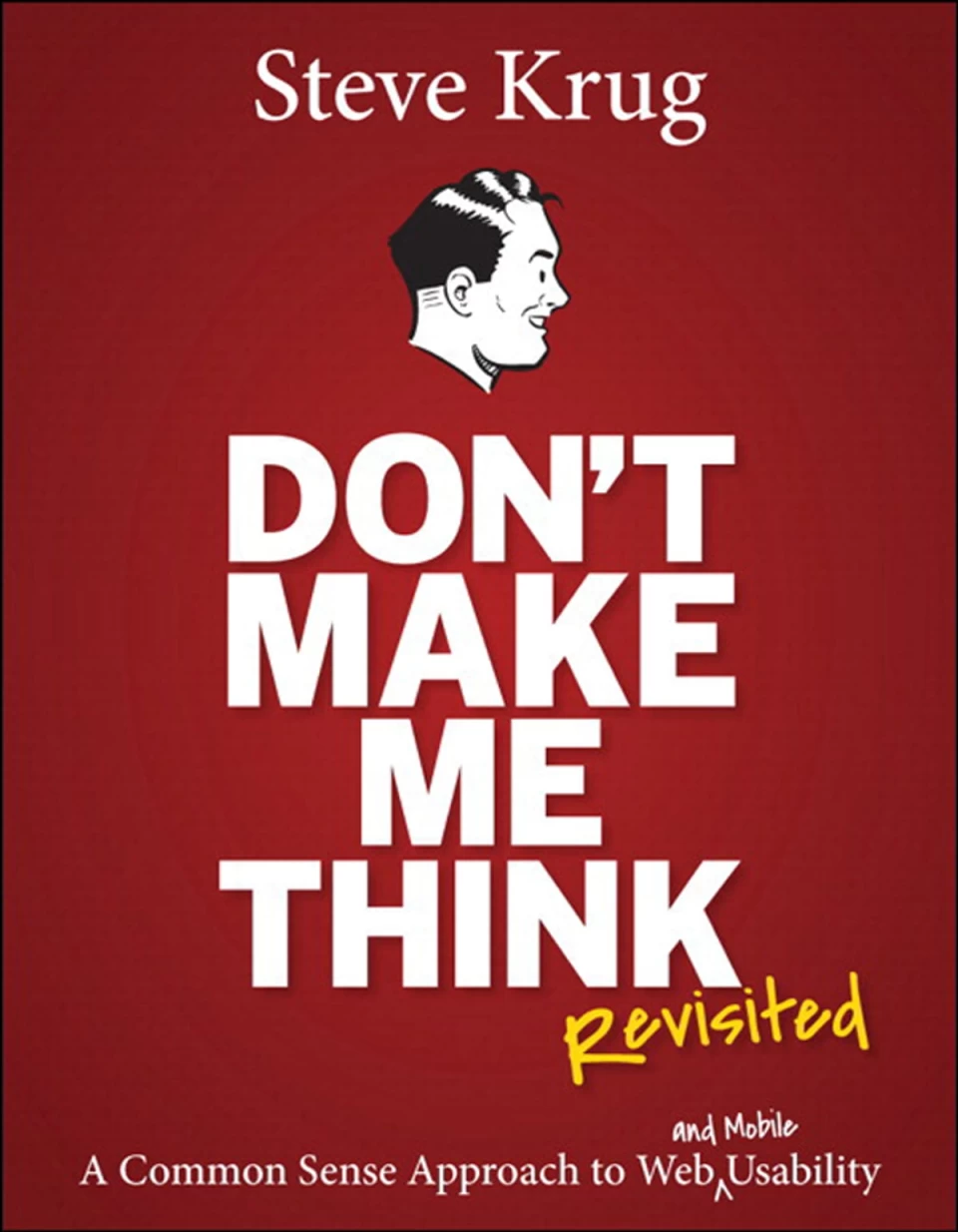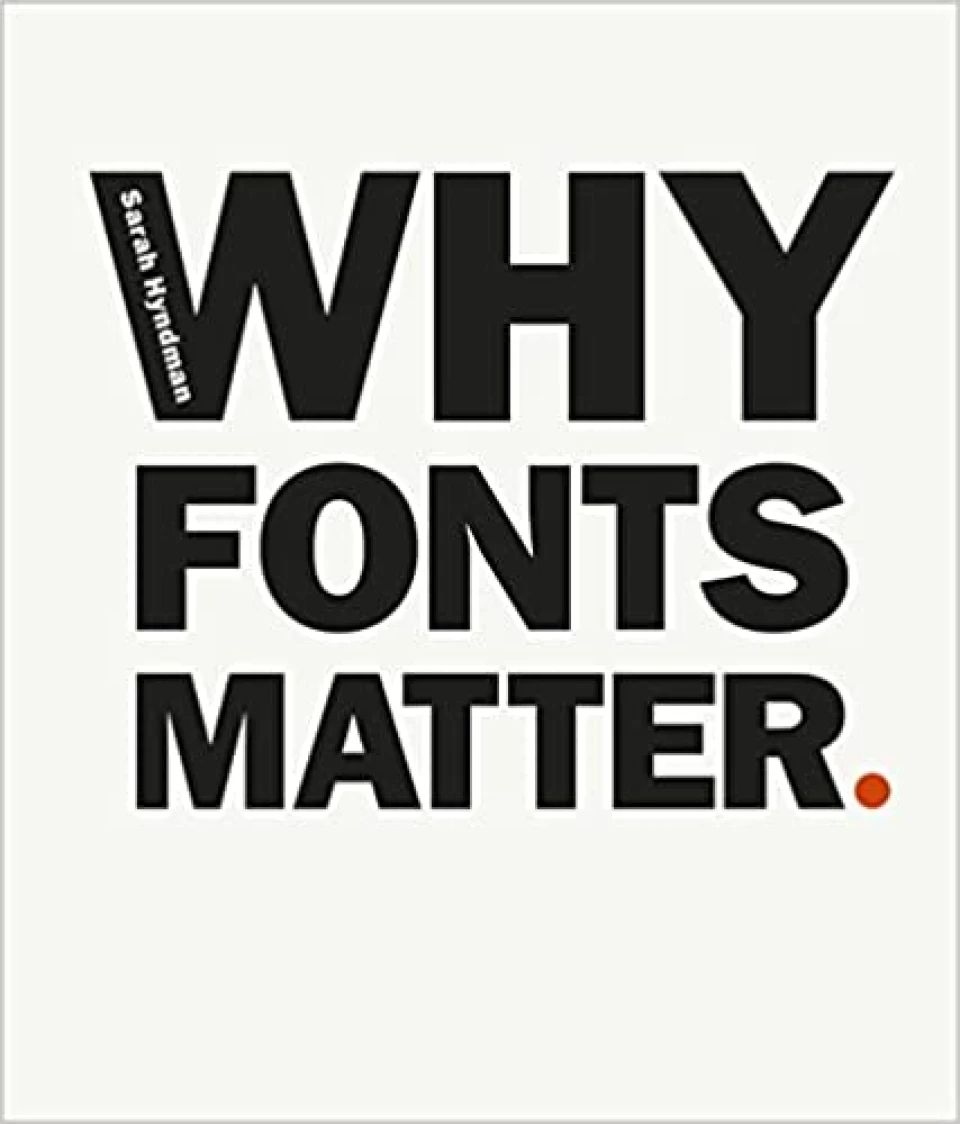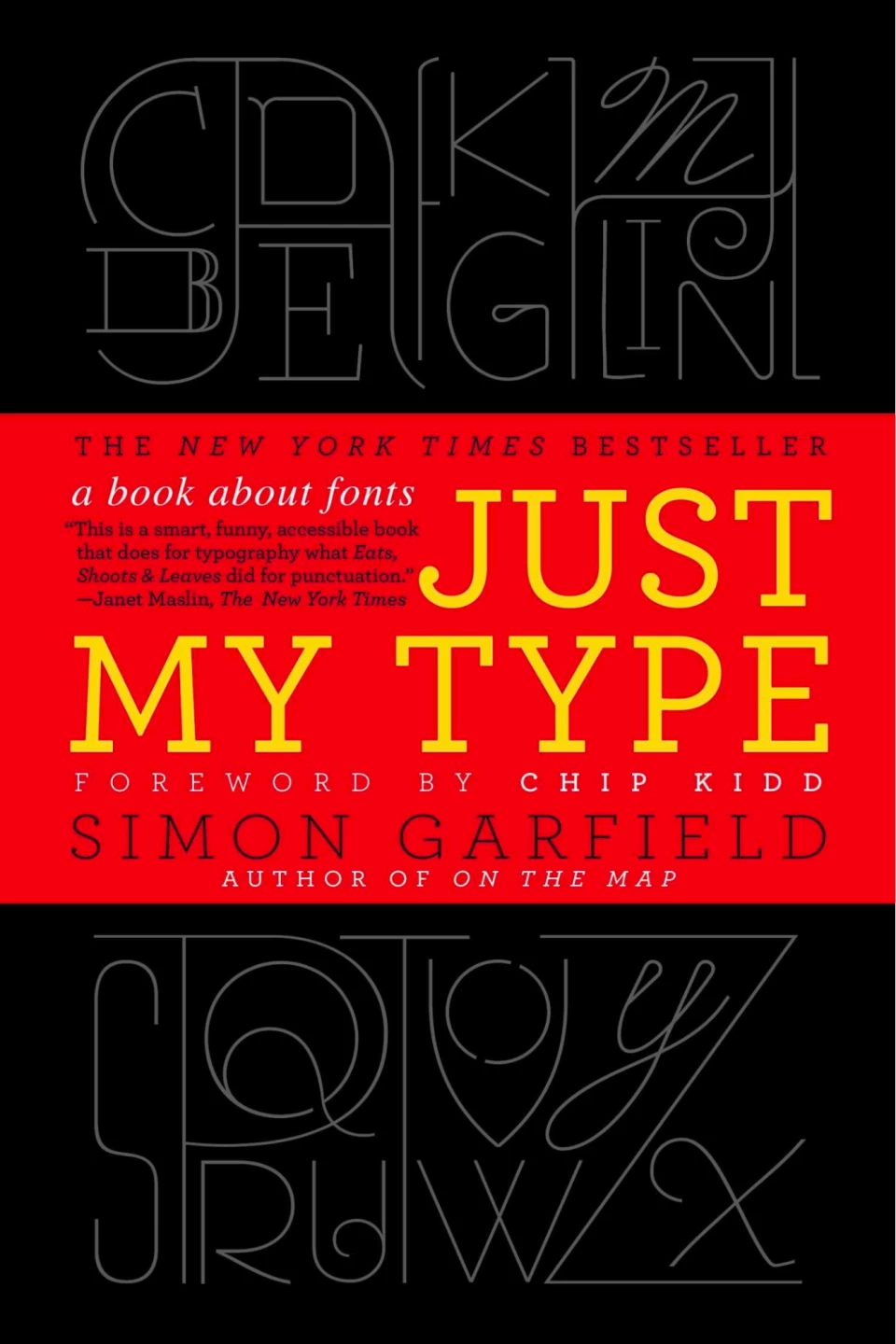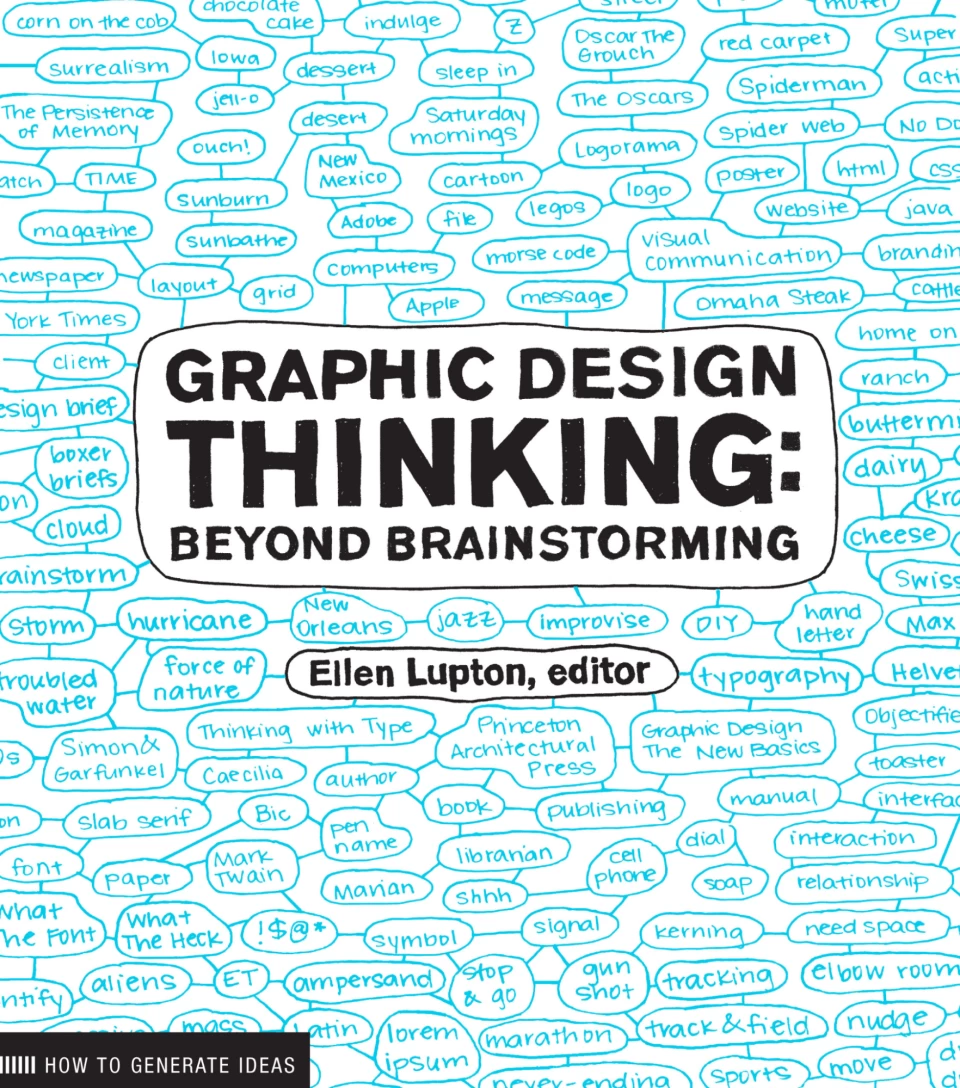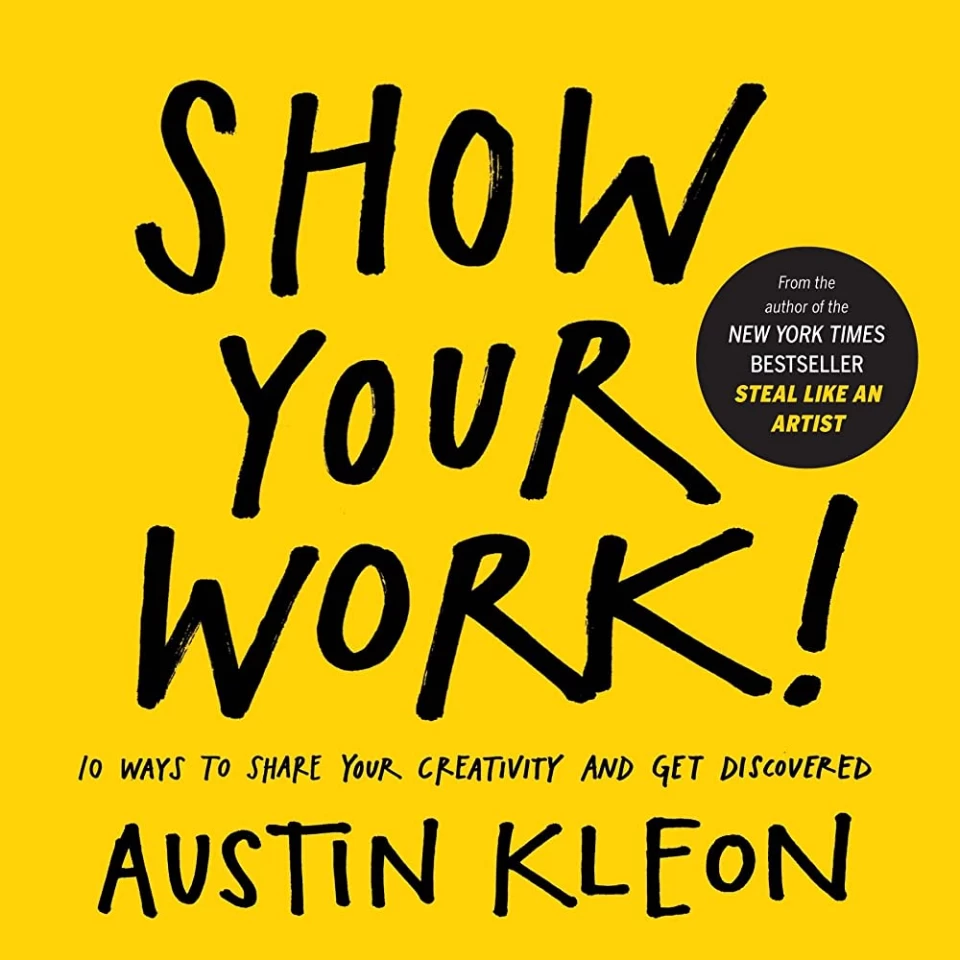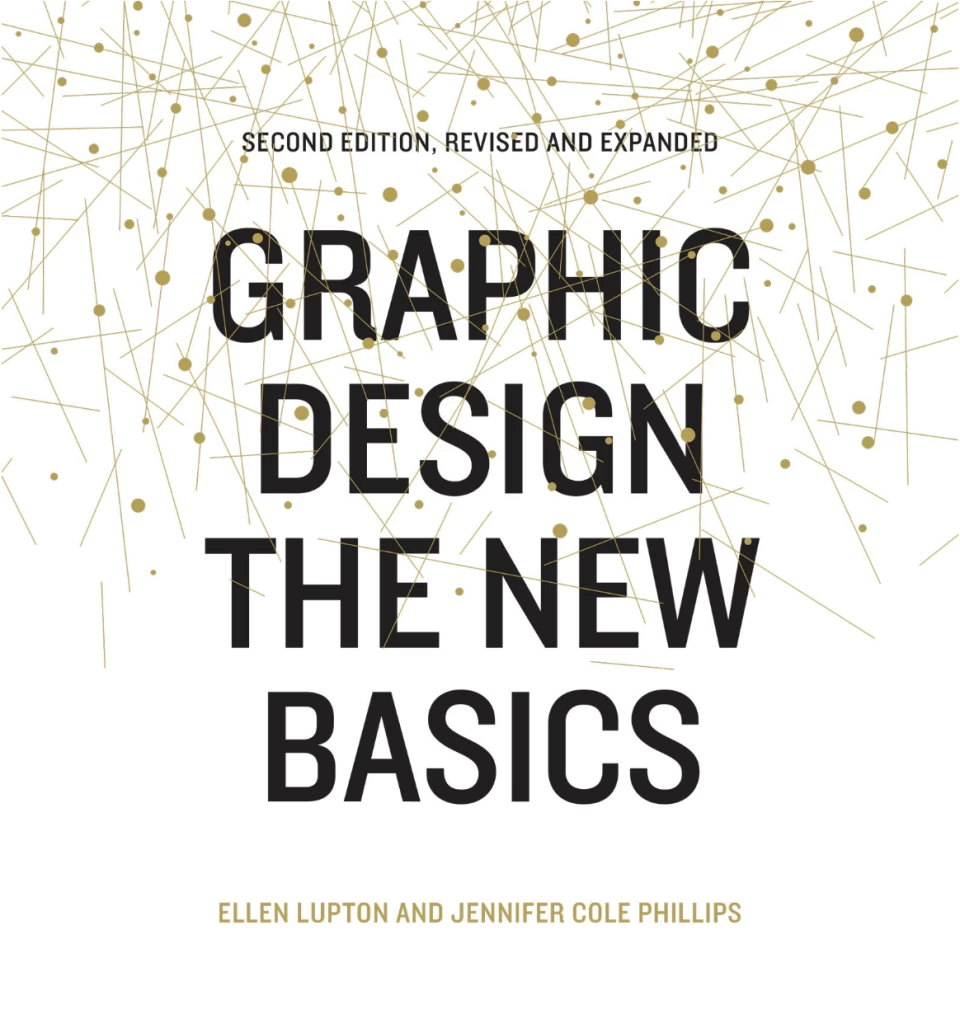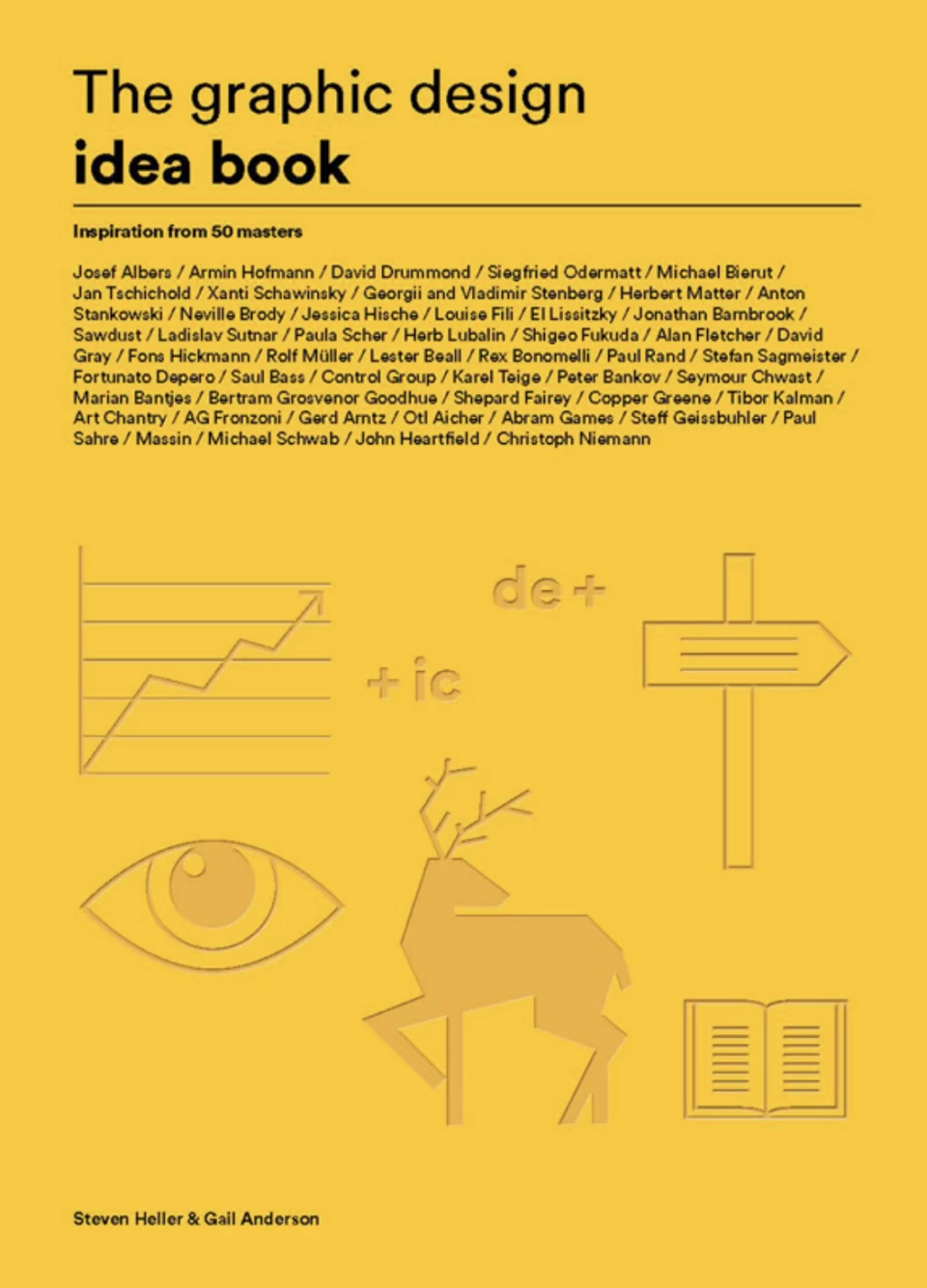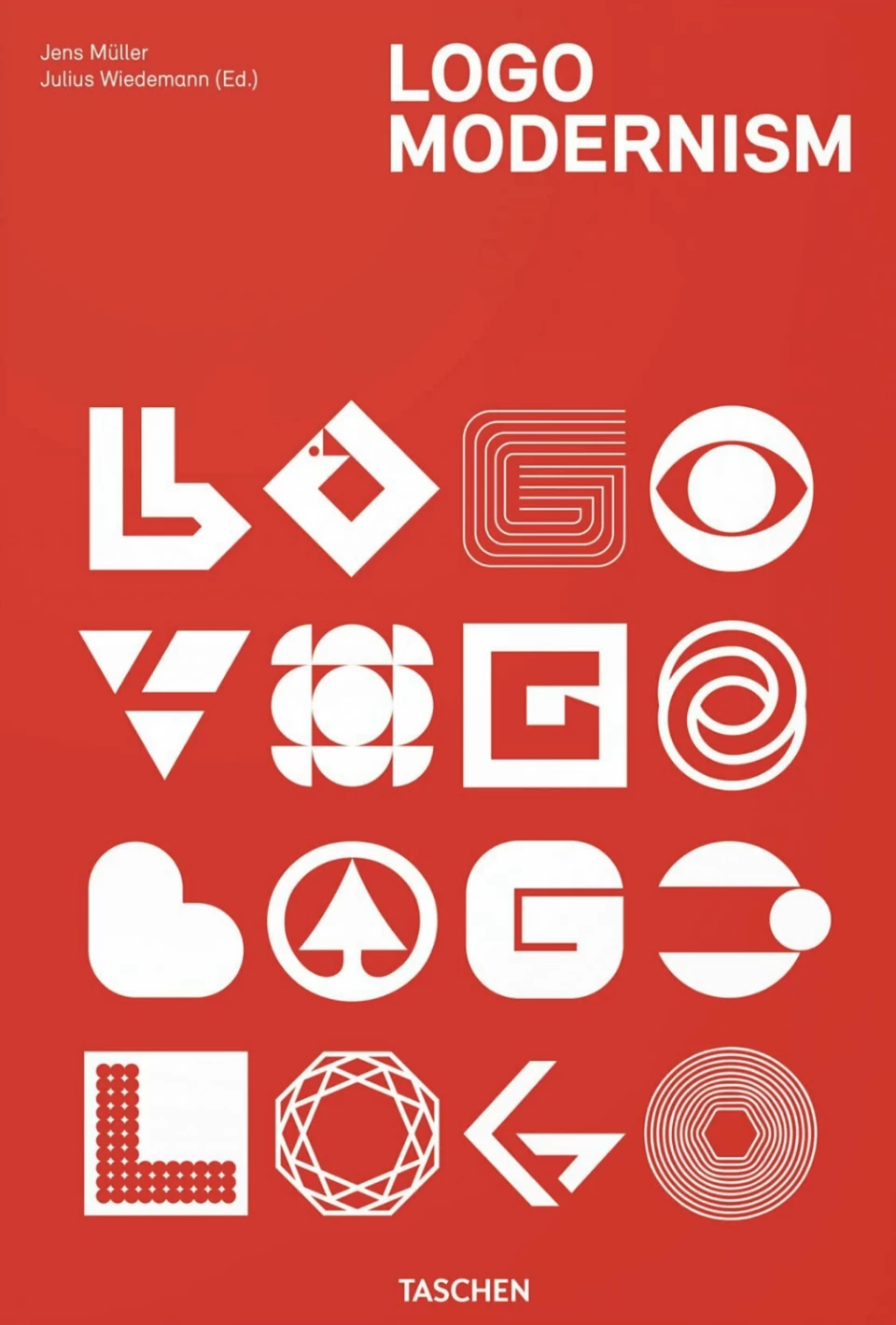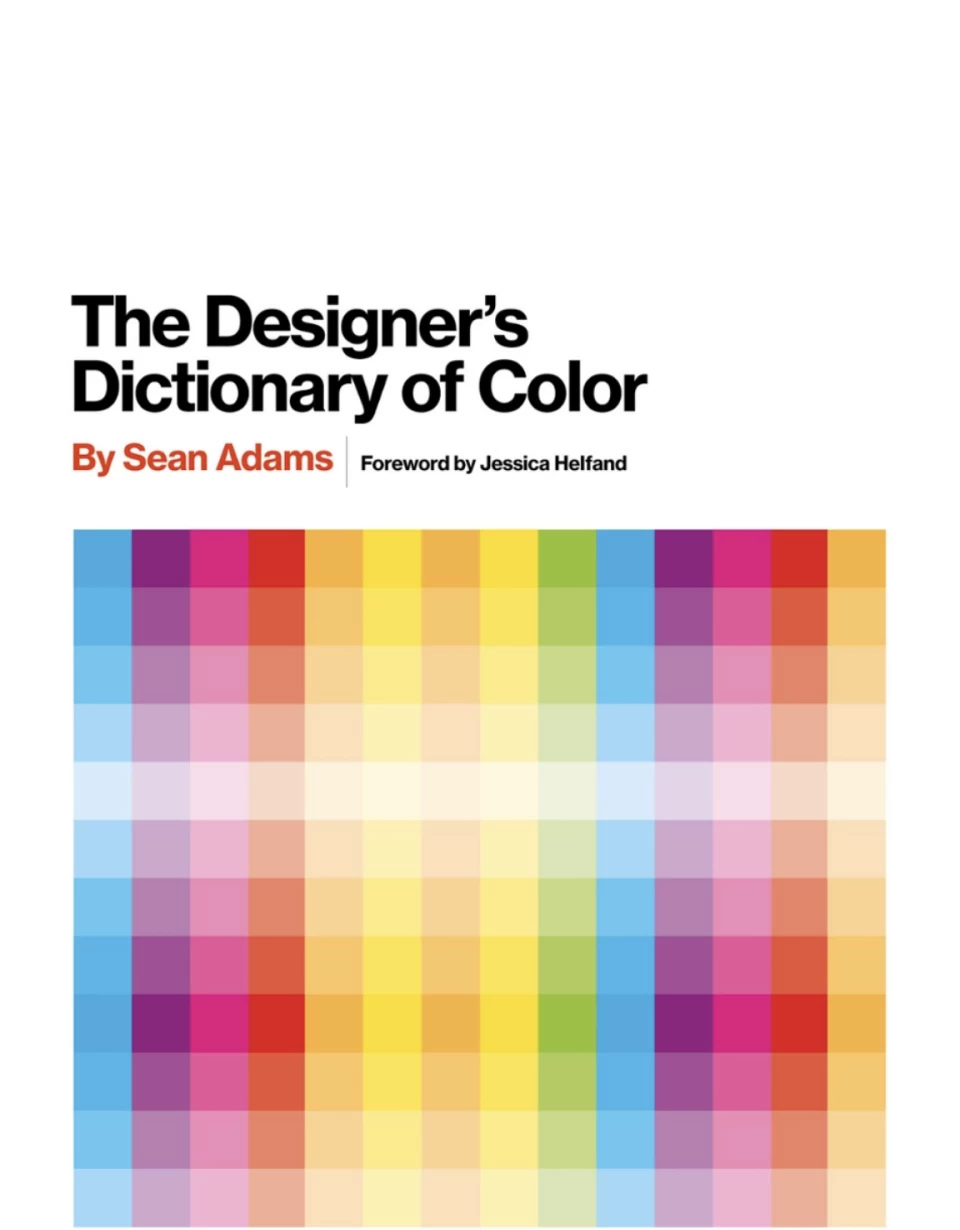The art of graphic design involves creating visual content to communicate ideas and information with images, illustrations, colors, and typography. It combines creativity and technical skills to create designs for a variety of applications, whether in books, magazines, advertisements, television, movies, and of course, all over the internet.
Countless industries use graphic design, from individuals and small businesses all the way to massive corporations. And with graphic designers earning average salaries upwards of $46K, it’s no wonder there are so many aspiring graphic designers today.
If you’d like to start a career in this field, you can begin by learning the fundamental principles and technical skills necessary for success. One of the best ways to do this is with the best graphic design books.
These can be excellent for beginners and experienced designers alike, so whether you’re starting out or looking to acquire advanced knowledge, we’ve the 17 best graphic design books you need to read in 2024. So let’s dive in to find the best books for graphic design!
Why Are Books on Graphic Design Important?
While most graphic designers work digitally, there’s no denying the helpfulness of graphic designer books. Some of the best books to learn graphic design can help learners pick up essential graphic design concepts and theories. You could even pair these with some of the best books on game design if you wanted to consider expanding into other areas!
So, why learn from graphic design books when you have so many digital resources at your disposal? Well, graphic design and graphic art books offer easily-referenced insights and information in a tangible format. They can also help you keep up with trends or take inspiration from the past. In fact, many graphics books are design showcases.
Naturally, you can read a graphic design text book to learn the principles of design. What you may not realize, however, is that many design books cover more of the field’s professional development side.
As a graphic design student, you may want to read books like Show Your Work!: 10 Ways to Share Your Creativity and Get Discovered by Austin Kleon or How to be a Graphic Designer Without Losing Your Soul by Adrian Shaughnessy.
How to Pick The Best Graphic Design Book?
With so many fantastic options, looking for the best books to learn Graphic design can feel daunting. That being the case, how exactly can you pick the right book to read?
Let’s look at some factors to consider as you shop for your next designing book:
- Author expertise - It’s only natural to want to learn from someone who knows their stuff. Look for books written by graphic design experts and professionals with a great track record.
- Relevance - Even if a design book is one of the best on the market, there’s no point reading it if it doesn’t cover the topics you need or are interested in. Search for books that specifically contain information on subjects you want to learn, like UI/UX, branding, typography, and more.
- Difficulty - Choose a book appropriate to your skill level to avoid feeling overwhelmed (or underwhelmed) with what you read.
- Design and visual elements - A design book should itself be well-designed to make it easier to read and digest. Ideally, it should contain case studies and images like illustrations or design examples to help learners understand lessons more easily.
- Format - Once you’ve chosen a book, decide whether you want to read it in paperback, hardcover, or e-book format.
One last thing you can do is check out reviews and see what others think of a book. It’s a good idea to read reviews by other designers, as they can help you gauge a book’s value more accurately.
The Best Graphic Design Books of 2024: Must Read for Designers
|
Book |
Author |
Pages |
Why You Need to Read It |
|
Robin Williams |
240 |
If you’re a non-designer or a total novice, this book will show you the fundamental principles you need to design successfully. |
|
|
Josef Müller-Brockmann |
176 |
This is a no-nonsense and comprehensive guide for working with grid systems in graphic design involving text and images. |
|
|
Thinking with Type: A Critical Guide to Designers, Writers, Editors & Students |
Ellen Lupton |
224 |
This is a valuable read for graphic designers — and everyone else who works with text and fonts. |
|
Michael Bierut |
320 |
“How to” offers amazing insights into design and the creative process; it is worth a read for those who want to see some of Bierut’s most noteworthy projects and behind-the-scenes. |
|
|
|
Adrian Shaughnessy |
176 |
This offers valuable and ever-relevant advice to novice graphic designers seeking both practical advice and philosophical guidance for starting their careers or creating their own studio. |
|
Josef Albers |
208 |
Interaction of Color is a six-decade-old book that teaches principles of complex color theory from one of the most influential artists in the 20th century. |
|
|
Creative Workshop: 80 Challenges to Sharpen Your Design Skills |
David Sherwin |
256 |
Read this if you want to challenge yourself to improve your creativity, resourcefulness, and problem-solving skills in design. |
|
Don’t Make Me Think, Revisited, A Common Sense Approach to Web Usability |
Steve Krug |
216 |
This is a fun read with witty yet practical guidance on intuitive information design and navigation for web (graphic) designers and developers. |
|
Designing Brand Identity: An Essential Guide for the Whole Branding Team |
Alina Wheeler |
336 |
This book is a fantastic read if you want to learn the ins and outs of brand identity and “branding”, a major facet of graphic design. |
|
Sarah Hyndman |
144 |
This is worth a read if you want to understand how powerful fonts can be in design — particularly for conveying your message. |
|
|
Simon Garfield |
384 |
This is a must-read for those who want to learn more about fonts and the printed world. |
|
|
Ellen Lupton |
184 |
This helps learners pick up various techniques around brainstorming and dispels the myth that creativity must be an in-born talent. |
|
|
Show Your Work!: 10 Ways to Share Your Creativity and Get Discovered |
Austin Kleon |
224 |
This is an extremely popular book that discusses how designers can network effectively while also trying to make themselves known in the industry. |
|
Ellen Lupton |
264 |
This is ideal for a comprehensive introduction to the key concepts of graphic design through commentary and demonstrations. |
|
|
Steven Heller and Gail Anderson |
128 |
This is a great read if you’re looking to learn more about the fundamentals of design through easy-to-understand writing and plenty of examples from acclaimed designers. |
|
|
Jens Müller and R. Roger Remington |
432 |
This book is good for learning how modernist attitudes brought about corporate identity. You’ll also get to see around 6,000 modernist trademarks from 1940-1980. |
|
|
Sean Adams |
256 |
This is worth a read if you want to learn more about the meanings of 27 key colors often used in art and graphic design. |
1. The Non-Designer’s Design Book
|
Key Information |
|
|
Author: Robin Williams |
Publisher: Peachpit Press |
|
Pages: 240 |
Edition: 4th |
|
Publish Date:November 2014 |
Level: Beginner |
|
Rating: 4.6/5 |
Formats: Paperback, eTextbook |
|
Reason to Buy: This book is an amazing choice for aspiring and novice designers who want to build a solid foundation in the field. |
|
Why We Chose This Book
Robin Williams’ The Non-Designer’s Design Book has been around for almost two decades, which pales compared to her design career, which began in the early 80s. This book, now in its 4th edition, teaches readers the fundamentals of graphic design while providing practical design advice.
From this 240-page book, readers will learn how to see and think like a professional graphic designer while receiving tips for designing various media like brochures, newsletters, and flyers. You will also learn how to work with color, typography, and more, with many visual examples, quizzes, and exercises to help you retain what you’ve learned.
The Non-Designer’s Design Book is a well-received book, with countless positive reviews stating how helpful it is for non-designers and novices alike.
2. Grid Systems in Graphic Design: A Visual Communication Manual for Graphic Designers, Typographers, and Three Dimensional Designers
|
Key Information |
|
|
Author: Josef Müller-Brockmann |
Publisher: Niggli Verlag |
|
Pages: 176 |
Edition: Bilingual edition |
|
Publish Date:October 1996 |
Level: Intermediate |
|
Rating: 4.8/5 |
Formats: Hardcover |
|
Reason to Buy: This book is a no-nonsense and comprehensive guide for working with grid systems in graphic design involving text and images. |
|
Why We Chose This Book
Grids can play an incredibly important role in various types of graphic design. Because there are so many benefits to working with grid systems in this field, this book is a fantastic read for intermediate designers looking to up their game by adding grids to their design work.
Although this 176-page book came out in 1996, it offers valuable and evergreen information that you can use even today. Grid Systems in Graphic Design provides readers with a comprehensive guide to using 8 to 32 grid fields in text and image design, with examples and directions.
3. Thinking with Type: A Critical Guide to Designers, Writers, Editors & Students
|
Key Information |
|
|
Author: Ellen Lupton |
Publisher: Princeton Architectural Press |
|
Pages: 224 |
Edition: 2nd |
|
Publish Date:October 2010 |
Level: All levels |
|
Rating: 4.6/5 |
Formats: Paperback, eBook |
|
Reason to Buy: Thinking with Type is a valuable read for graphic designers — and everyone else who works with text and fonts. |
|
Why We Chose This Book
Author Ellen Lupton is an incredibly accomplished graphic designer who currently holds prestigious positions at the Maryland Institute College of Art and at the Cooper Hewitt, Smithsonian Design Museum in New York City.
Her book is an incredible read for designers looking to conquer typography, which to many, can be a daunting facet of graphic design. Not only is this 224-page book great for graphic designers, but it is also a good read for anyone else working with text.
In this book, you’ll learn all about typefaces and fonts, choosing the right ones, mixing and matching, and more. You’ll also read about font licensing, an important bit of knowledge for professional graphic designers.
Ellen Lupton shares many valuable typography and design-related tips on her Instagram page.
4. How to Use Graphic Design to Sell Things, Explain Things, Make Things Look Better, Make People Laugh, Make People Cry and (Every Once in a While) Change the World
|
Key Information |
|
|
Author: Michael Bierut |
Publisher: Harper Design |
|
Pages: 320 |
Edition: Illustrated |
|
Publish Date:November 2015 |
Level: All levels |
|
Rating: 4.6/5 |
Formats: Hardcover, eBook |
|
Reason to Buy: “How to” is a book that offers amazing insight on design and the creative process; it is worth a read for those who want to see some of Bierut’s most noteworthy projects and behind-the-scenes. |
|
Why We Chose This Book
This book is a career retrospective from author Michael Bierut. It showcases more than 35 of his most notable projects, including insights into his eclectic creative process and behind-the-scenes. In this book, you’ll see Bierut’s preliminary drawings, historic images, rejected alternatives, working models, and more.
Michael Bierut is a well-renowned graphic designer with a long and storied career. He has worked with a variety of clients, including big names like Harley-Davidson, the New York Jets, and Saks Fifth Avenue.
5. How to Be a Graphic Designer Without Losing Your Soul
|
Key Information |
|
|
Author: Adrian Shaughnessy |
Publisher: Princeton Architectural Press |
|
Pages: 176 |
Edition: New Expanded |
|
Publish Date:September 2010 |
Level: Beginner+ |
|
Rating: 4.6/5 |
Formats: Paperback, eBook |
|
Reason to Buy: This book offers valuable and ever-relevant advice to novice graphic designers seeking both practical advice and philosophical guidance for starting their careers or creating their own studio. |
|
Why We Chose This Book
Available in an expanded edition, this book is a trusted and valuable resource for beginning graphic designers who want practical advice alongside philosophical guidance that will help them remain ethical during their careers.
Read this book if you want clear and concise guidance or strategies for getting your own studio set up down the line. It contains interviews with many leading designers like Sara De Bondt and Jonathan Barnbrook to help readers glean more insight.
6. Interaction of Color
|
Key Information |
|
|
Author: Josef Albers |
Publisher: Yale University Press |
|
Pages: 208 |
Edition: 50th anniversary |
|
Publish Date:June 2013 |
Level: All levels |
|
Rating: 4.7/5 |
Formats: Paperback, eBook |
|
Reason to Buy: Interaction of Color is a six-decade-old book that teaches principles of complex color theory from one of the most influential artists in the 20th century. |
|
Why We Chose This Book
It would be tough to create a list of the best graphic design books without including one of the most respected and influential books on the topic of color theory and design. Its influence has touched many generations of artists and graphic designers and continues to do so today.
Interaction of Color is a book that has been around for sixty years. It contains evergreen content that was valid then and is still valid now. This book is an authoritative and comprehensive guide to color, covering vital topics like color theory principles, the perception of color, and applying color in design.
We like this book for its visual richness and accessibility, as it features diagrams, color plates, and even some exercises to help put learning into action. And, if you’d like to learn more about color in a historical and cultural context, this book has the information you need.
7. Creative Workshop: 80 Challenges to Sharpen Your Design Skills
|
Key Information |
|
|
Author: David Sherwin |
Publisher: HOW Books |
|
Pages: 256 |
Edition: Illustrated |
|
Publish Date:November 2010 |
Level: Intermediate+ |
|
Rating: 4.6/5 |
Formats: eBook, Paperback |
|
Reason to Buy: Read this book if you want to challenge yourself to improve your creativity, resourcefulness, and problem-solving skills in design. |
|
Why We Chose This Book
If you feel like you want to challenge yourself, this is a fantastic read as it contains 80 creative challenges to help you improve your design skills, creativity, and problem-solving skills over time.
You’ll see exercises such as creating a typeface in one hour or designing paper robots within a single afternoon. Exercises come with visual solutions provided by other designers and are accompanied by background stories for more insight.
8. Don’t Make Me Think, Revisited, A Common Sense Approach to Web Usability
|
Key Information |
|
|
Author: Steve Krug |
Publisher: New Riders |
|
Pages: 216 |
Edition: 3rd |
|
Publish Date:December 2013 |
Level: Intermediate+ |
|
Rating: 4.6/5 |
Formats: Paperback, eBook |
|
Reason to Buy: “Don’t Make Me Think” is a fun read as it offers witty yet practical guidance on intuitive information design and navigation for web (graphic) designers and developers. |
|
Why We Chose This Book
If you want to break into web design, Steve Krug’s “Don’t Make Me Think” is a great book to read. It comes highly recommended and continues to help many with improving their web design skills.
First arriving in the year 2000, it’s now on the 3rd edition and contains new updates, including a chapter about mobile usability. This 216-page book includes many illustrations and features the author’s witty and engaging style.
9. Designing Brand Identity: An Essential Guide for the Whole Branding Team
|
Key Information |
|
|
Author: Alina Wheeler |
Publisher: Wiley |
|
Pages: 336 |
Edition: 5th |
|
Publish Date:October 2017 |
Level: Intermediate+ |
|
Rating: 4.6/5 |
Formats: Digital, Hardcover, eBook |
|
Reason to Buy: This book is a fantastic read if you want to learn the ins and outs of brand identity and “branding”, a major facet of graphic design. |
|
Why We Chose This Book
If you’re just dipping your toes into the design world, chances are you’ve heard of branding or branding identity. Branding is a major facet of graphic design that you may need to become comfortable with.
Luckily, books like Alina Wheeler’s Designing Branding Identity can help you learn practically everything you need on the topic. This book covers more than 100 subjects, tools, checklists, and diagrams on branding. It offers 50 case studies, 700 illustrations, and over 400 quotes from design gurus, branding experts, and CEOs.
10. Why Fonts Matter
|
Key Information |
|
|
Author: Sarah Hyndman |
Publisher: Virgin Books |
|
Pages: 144 |
Edition: 1st |
|
Publish Date:June 2016 |
Level: Beginner+ |
|
Rating: 4.6/5 |
Formats: Paperback |
|
Reason to Buy: “Why Fonts Matter” is worth a read if you want to understand how powerful fonts can be in design — particularly for conveying your message. |
|
Why We Chose This Book
Why Fonts Matter is a shorter 144-page book by Sarah Hyndman that explores the reasoning behind how and why fonts influence us, as well as how they can evoke certain feelings, thoughts, and associations.
If you want to learn more about fonts and your emotional and mental response to certain font choices, this book is worth a read. Understanding more about the psychology behind fonts can make it easier for you to choose the right ones for your designs.
11. Just My Type: A Book About Fonts
|
Key Information |
|
|
Author: Simon Garfield |
Publisher: Avery |
|
Pages: 384 |
Edition: Illustrated |
|
Publish Date:September 2012 |
Level: Beginner+ |
|
Rating: 4.5/5 |
Formats: Paperback, Hardcover, MP3 CD |
|
Reason to Buy: “Just My Type” is a must-read for those who want to learn more about fonts and the printed world. |
|
Why We Chose This Book
This book explores the history of graphic design as it relates to fonts and typefaces. In this long 384-page book, author Simon Garfield looks at the history of many of the world’s popular fonts, including Times New Roman, Arial, Comic Sans, Helvetica, and more.
Read this book if you want to learn more about what makes a font look a certain way so you can more easily choose which ones to use in your next designs!
12. Graphic Design Thinking: Beyond Brainstorming
|
Key Information |
|
|
Author: Ellen Lupton |
Publisher: Princeton Architectural Press |
|
Pages: 184 |
Edition: Illustrated |
|
Publish Date:July 2011 |
Level: Intermediate+ |
|
Rating: 4.6/5 |
Formats: Paperback |
|
Reason to Buy: “Graphic Design Thinking” helps learners pick up various techniques around brainstorming and dispels the myth that creativity must be an in-born talent. |
|
Why We Chose This Book
This is Ellen Lupton’s second book on this list, and in this outing, she helps to demystify the graphic design creative process by offering various tips and techniques. These techniques are grouped into design’s three basic phases: defining a problem, inventing the ideas, and finally, creating form.
13. Show Your Work!: 10 Ways to Share Your Creativity and Get Discovered
|
Key Information |
|
|
Author: Austin Kleon |
Publisher: Workman Publishing Company |
|
Pages: 224 |
Edition: Illustrated |
|
Publish Date:March 2014 |
Level: All levels |
|
Rating: 4.6/5 |
Formats: Paperback, eBook |
|
Reason to Buy: “Show Your Work!” is an extremely popular book that discusses how designers can network effectively while also trying to make themselves known in the industry. |
|
Why We Chose This Book
Show Your Work! is one of Austin Kleon’s best-selling books, which also includes titles like Steal Like an Artist and Keep Going. In this book, the author helps readers learn what they can do to take the critical next steps in their careers so they can start getting their names out there.
This illustrated book offers ten transformative rules that designers can choose to live by. These rules include things like “Stick around,” “Share something small every day,” and “You don’t have to be a genius.”
Overall, this is a good read for graphic designers looking to succeed in the digital age.
14. Graphic Design: The New Basics
|
Key Information |
|
|
Author: Ellen Lupton |
Publisher: Princeton Architectural Press |
|
Pages: 264 |
Edition: 2nd |
|
Publish Date:July 2015 |
Level: Beginner |
|
Rating: 4.6/5 |
Formats: Paperback, Hardback, eBook |
|
Reason to Buy: Read Ellen Lupton’s Graphic Design: The New Basics if you’d like to have a comprehensive introduction to the key concepts of graphic design through commentary and demonstrations. |
|
Why We Chose This Book
Beginners will enjoy Ellen Lupton’s Graphic Design for its clear and concise commentary and visual demonstrations. In this 264-page book, Lupton explores the formal and foundational elements of graphic design as she introduces them to the readers.
In this book, you can expect to learn about topics like rhythm and balance, color, texture, hierarchy, grids, layers, and much more.
15. The Graphic Design Idea Book: Inspiration from 50 Masters
|
Key Information |
|
|
Author: Steven Heller and Gail Anderson |
Publisher: Laurence King Publishing |
|
Pages: 128 |
Edition: 1st |
|
Publish Date:May 2016 |
Level: Beginner |
|
Rating: 4.5/5 |
Formats: Paperback, eBook |
|
Reason to Buy: This book is a great read for those looking to learn more about the fundamentals of design through easy-to-understand writing and plenty of examples from acclaimed designers. |
|
Why We Chose This Book
The Graphic Design Idea Book is quite short, at 128 pages, but that doesn’t mean that it doesn’t provide great value!
This book introduces readers to the key elements of good graphic design, with topics broken into sections for easier reading. You’ll see plenty of examples from acclaimed designers to help better explain concepts, including things like narrative, form, type and image, color, and more.
16. Logo Modernism
|
Key Information |
|
|
Author: Jens Müller and R. Roger Remington |
Publisher: TASCHEN |
|
Pages: 432 |
Edition: Multilingual |
|
Publish Date:November 2015 |
Level: All levels |
|
Rating:4.9/5 |
Formats: Hardcover |
|
Reason to Buy: Read this book to learn about how modernist attitudes brought about corporate identity. You’ll also get to see around 6,000 modernist trademarks from 1940-1980. |
|
Why We Chose This Book
If you’ve ever wanted to learn more about modernist aesthetics in art and design, Logo Modernism is a great starting point.
In this book, you’ll see around 6,000 trademarks from 1940-1980, from which you can draw inspiration. The book is split into three chapters, namely Geometric, Typographic, and Effect. In this book, you can learn more about the history of logos, modernism, and more.
17. The Designer’s Dictionary of Color
|
Key Information |
|
|
Author: Sean Adams |
Publisher: ABRAMS |
|
Pages: 256 |
Edition: 1st |
|
Publish Date:April 2017 |
Level: All levels |
|
Rating: 4.6/5 |
Formats: Hardcover, eBook |
|
Reason to Buy: The Designer’s Dictionary of Color is worth a read if you want to learn more about the meanings of 27 key colors often used in art and graphic design. |
|
Why We Chose This Book
The Designer’s Dictionary of Color is a self-proclaimed guidebook on the meaning and history of art and design’s 27 key colors.
These colors are arranged by spectrum, including charts showing each hue’s range and palette variations. This book is worth a read for designers of any experience level, especially if they want to deepen their understanding of colors and their usage.
Conclusion
Graphic design is ubiquitous in today’s society. Nowadays, it can be challenging to find anything mass-produced that doesn’t involve some sort of graphic design. And if you’d like to be among the countless professionals creating designs for a living, learning the necessary skills is paramount.
That’s why we recommend the best graphic design books — they not only help you learn to design, but they also act as resources and easy references. We hope that our recommendations above have helped you find the best book on graphic design. Let us know which one you’re adding to your shelf next!
Want to leverage your design skills for game design? Check out
Frequently Asked Questions
1. Can I Study Graphic Design on My Own?
Yes, you can absolutely study graphic design on your own. You can read a graphic design book, enroll in a course, or even just learn on your own using the wealth of free tutorials and guides online. Taking time to practice can help you develop crucial skills and put together a portfolio for later on. Make sure you also network with other designers who can help you with tips and feedback!
2. What Are the 7 Types of Graphic Design?
Some sources say there are 7 types, while others may say 8 or 9. For example, Berkeley College states that there are 8 types of graphic design, namely:
- Web design
- UI and interactive design
- Advertising and marketing design
- Motion graphics and animation
- Packaging design
- Game design
- Illustration
- Publication and typographic design
3. Who Is the No. 1 Graphic Designer?
With so many accomplished graphic designers in the past and present, it’s extremely challenging to find just one great designer. However, we’ve been able to select three influential professionals:
- Paul Rand, known for iconic logos for companies like UPS, ABC, and IBM
- Saul Bass, who created some of the best movie posters and most iconic title sequences ever (plus some logos like AT&T and United Airlines)
- Massimo Vignelli, whose minimalist and modernist style continues to influence designers today
There are many more amazing designers out there, including those on this list of the most famous designers.
4. Can I Learn Graphic Design in 3 Months?
You can learn the basics of graphics design within three months. However, it may take you longer to master the craft as well as the tools of the trade. You can maximize your learning in a three-month period by enrolling in intensive boot camps and courses.
5. Can I Study Graphic Design if I Can’t Draw?
Absolutely! The field of graphic design involves far more than just drawing and illustration. While knowing how to draw can be a handy skill for a designer, it’s not a necessary skill — especially now that there are countless tools at your disposal.
6. Is Graphic Design High Paying?
Graphic designer salaries can vary depending on a professional’s location, industry, skill level, and experience. According to the US Bureau of Labor Statistics, graphic designers earned an average annual income of $50,710 in 2021, but Glassdoor says that average is closer to $46K.
People are also reading:
